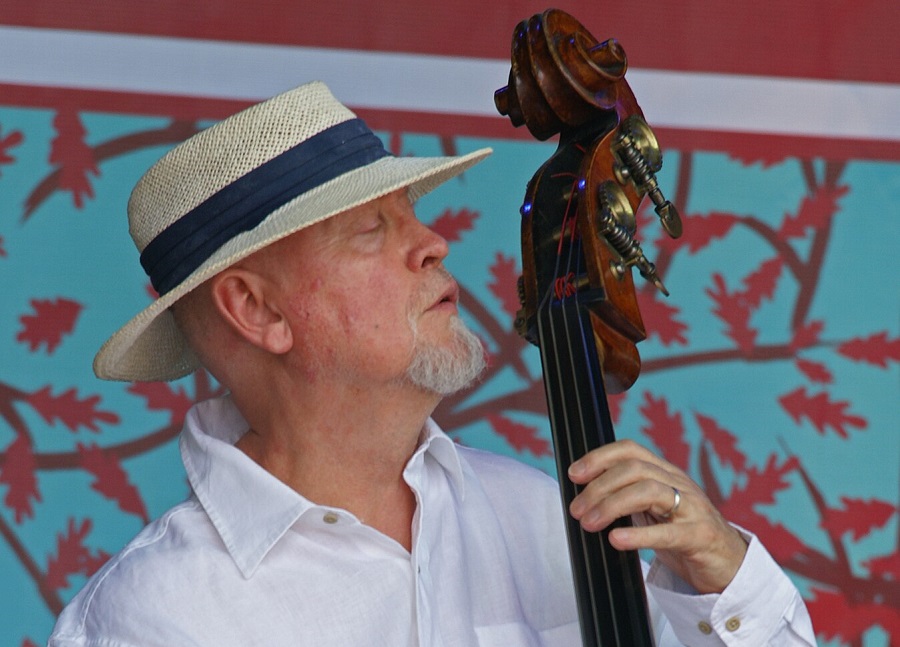Legendary Bassist Danny Thompson Dies

It was announced today that legendary double bassist Danny Thompson has died at his home in Rickmansworth. With his passing, the music world loses one of the finest double bassists who has ever lived. Thompson played on hundreds of records and worked with everyone, from folk legends to pop stars.
In the late sixties, Thompson formed Pentangle alongside Bert Jansch, John Renbourn, Jacqui McShee and Terry Cox. This band blended British folk with jazz and blues in a way that no one had done before. Albums such as “Basket of Light” and “The Pentangle” remain masterpieces.
But Pentangle was only the beginning. Thompson’s collaboration with John Martyn became one of the most beautiful partnerships in British folk-rock. Their music fitted together perfectly, and they continued working together until Martyn’s death.
With Nick Drake, Thompson played on his beautiful “Five Leaves Left” (1969), where his double bass gave Drake’s vulnerable songs a warm foundation. With Kate Bush, he could be heard on “The Dreaming” (1982), “Hounds of Love” (1985), “Director’s Cut” (2011) and the wintry “Fifty Words for Snow” (2011).
With Talk Talk, he contributed to “The Colour of Spring” (1986) and “Spirit of Eden” (1988), albums where silence was just as important as sound. With David Sylvian, he made his most beautiful solo albums, “Brilliant Trees” (1984) and “Secrets of the Beehive” (1987). Mike Lindup from Level 42 asked him for his solo album “Changes” (1990). Thompson also played with former Level 42 members like Alan Holdsworth and Jakko Jakszyk.
Thompson could work with anyone. He played with ABC on “Alphabet City” (1987) when synthpop was at its height. With Cliff Richard he made “Congratulations” (1968), which shows that he was also at home in mainstream pop.
Thompson looked beyond England. With flamenco group Ketama and kora player Toumani Diabaté, he created Songhai, which resulted in “Songhai” (1988) and “Songhai 2” (1994). He worked with S.E. Rogie on “Dead Men Don’t Smoke Marijuana” (1997) and with Deva Premal on the meditative “Dakshina” (2005).
With his old Pentangle mate Bert Jansch, he continued collaborating on albums such as “Birthday Blues” (1969), “Moonshine” (1972), “L.A. Turnaround” (1974), “Avocet” (1979) and “Sketches” (1990). With T. Rex, he played on “Light of Love” (1974) and “Zinc Alloy and the Hidden Riders of Tomorrow” (1974), where he provided Marc Bolan’s glam-rock with his distinctive bass lines. With Tasmin Archer, he played on her hit album “Great Expectations” (1992), with Sam Brown on “Stop!” (1988).
His jazz background remained important. With the Chris McGregor Septet, he recorded “Up to Earth” (1969). With The Incredible String Band, he contributed to “The 5000 Spirits or the Layers of the Onion” (1967) and “Hard Rope & Silken Twine” (1973), psychedelic folk that went in all directions.
With Donovan, Thompson made an entire series of albums: “Barabajagal” (1968), “HMS Donovan” (1971), “Essence to Essence” (1973), “Love Is Only Feeling” (1981), “Sutras” (1996) and “Beat Cafe” (2004). With Everything But The Girl, he played on “Amplified Heart” (1994), with Rod Stewart on the classic “Every Picture Tells a Story” (1971). Peter Gabriel brought him in for “Up” (2002), Loreena McKennitt for “The Book of Secrets” (1997), and Alison Moyet for “Hoodoo” (1991). Even with Graham Coxon from Blur, he still made “The Spinning Top” (2009).
Thompson had something special. He could connect with any music without losing his own sound. Whether it was the dreamy folk of Nick Drake, the experimental rock of Talk Talk, the glam of T. Rex, or the pop of Kate Bush, Thompson always found the right tone. He didn’t choose the easy money. Thompson joined projects because the music was good, not because it paid well. One of his maddest jobs was the theme music for “Thunderbirds” in 1964.
Thompson connected different musical worlds. Jazz with folk, rock with world music, and experimental music with pop. He demonstrated that good music knows no boundaries. Thompson played on more albums than most people will ever hear. His warm bass sound was more than keeping rhythm; it gave each song its own feeling. Danny Thompson was a double bassist, but actually, he was a translator. He could speak the language of every musical style and ensured that different musicians understood each other.
Danny Thompson was 86 years old.




